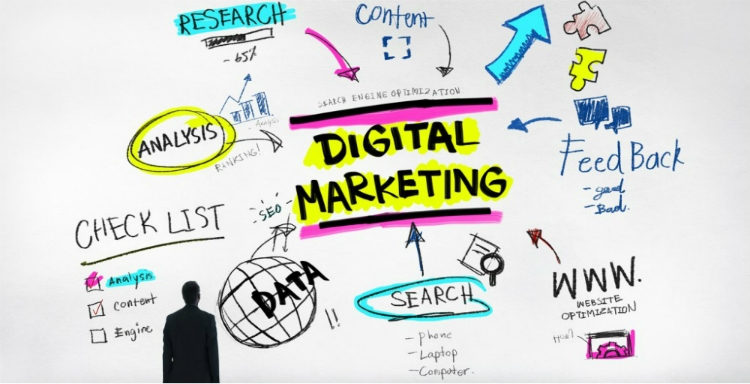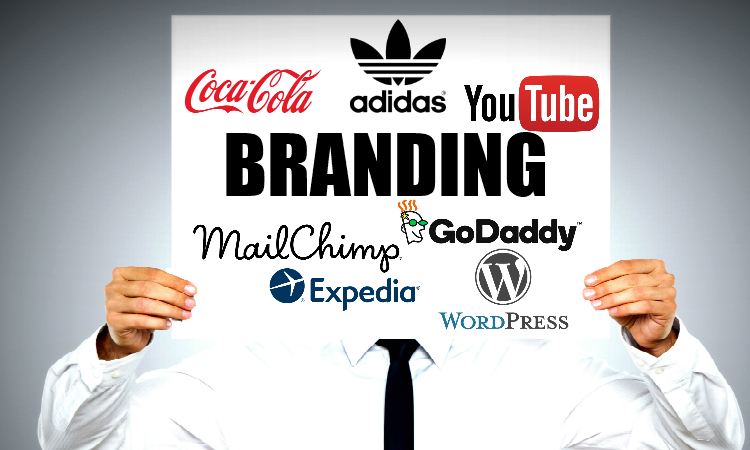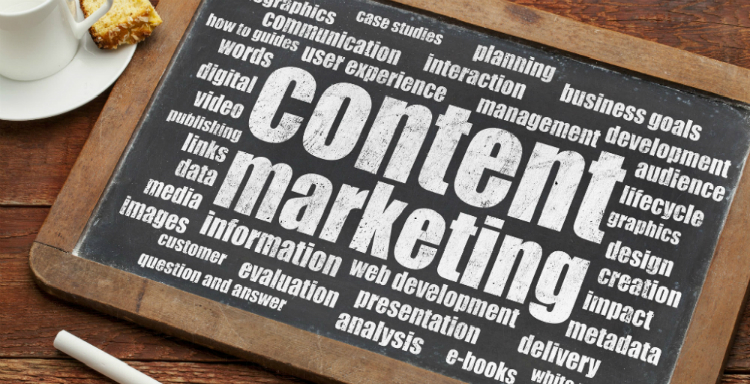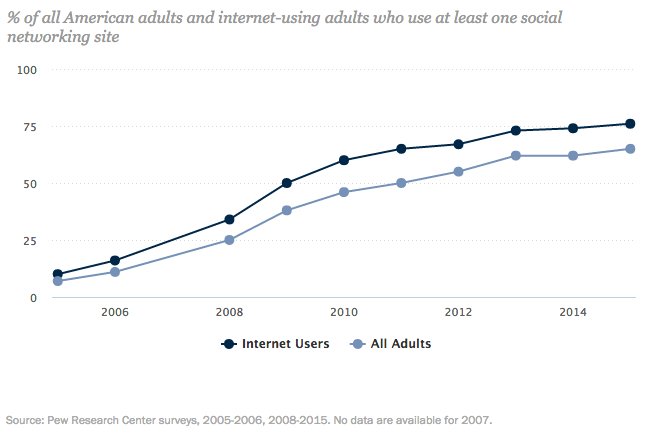Continuing with a pattern of previous years, 2019 will see the continuous evolution of many B2B marketing trends of recent years and some newer concepts will become more general. So, which trends will probably have the biggest impact on companies in the next year?

By using this link you can see the whole process: B2b Lead Generation
1. The Continuous Expansion of the Marketing Role and the Greater Overlap with Sales / PR / HR / IT:
To meet the demands of today’s market, the role of B2B marketers has been and will continue to expand beyond the “comforts of the marketing department.”
B2B companies are facing an increasing number of unique challenges that include talent shortages, buyer change, commodification and increasing competition, to name just a few. While these are certainly organizational challenges that will require collaboration between departments to solve them, marketing is well positioned to lead the charge or contribute greatly.
While we have already seen the growing participation of marketing in initiatives that are traditionally exclusive property of sales, HR, public relations and IT (Information Technology), 2019 will definitely see how marketing talents are used most throughout the company:
- To face the war for talent, marketers continue to play a more important role in helping their companies develop and execute marketing strategies to attract talent (recruitment).
- Marketing will also begin to play a more important role in shaping the company’s culture and collaborating on employee experience programs
- Companies will rely on marketing to help in initiatives that are more driven by retention, such as improving internal communication and developing more useful company intranets.
- As more companies launch formal customer experience (CX) initiatives, marketing teams will be asked to play an important role in the multi-functional process
- Business development and sales teams looking to reduce their focus and expand their impact will need marketing to drive account-based campaigns
- Larger companies with separate public relations and communication teams will begin to consolidate and / or align their content and communication efforts with those of marketing and sales.
- Marketing leaders, even those in industries where marketing has historically not had “a place at the table”, will increasingly be in charge of helping with strategic planning

While these are just some examples of how the role of marketing will continue to evolve, the most important thing is that B2B companies are realizing the value of marketing and the untapped potential for a greater contribution to the success of the underlying objectives.
2. A Holistic View of the Customer Experience (CX):
If there is a business concept that practically permeates all industries, both B2B and B2C, it is experience. The customer experience (CX) has become the key to creating a genuine differentiation and sustained competitive advantage in the “age of the customer.” While many of our B2C counterparts realized a few years ago, B2B companies now recognize that to gain in business requires a true customer-centric approach. But creating CX without rival does not happen from nothing! In fact, companies are beginning to understand that the other Xs, the experience of the employees (EX) and the experience of the brand (BX), are part of the CX equation.
These three seemingly separate functions have to work together to authentically fulfill a company’s brand promise. You cannot provide exceptional CX without a highly engaged, customer-focused workforce (EX) to make CX happen. And CX is what ultimately makes your brand’s promise come alive (BX).
The point is that, in 2019, more firms will begin to consider the experience in each facet of their business, adopting a vision of the much more holistic experience. As CX, EX and the brand converge, the alignment of the three is essential to fulfill each one’s mission and, ultimately, to create a sustainable competitive advantage.
3. Greater Emphasis On Brand And Brand Initiatives:
Speaking of brand, another concept not so new that will gain more and more emphasis in 2019 is the update and enhancement of a good old-fashioned or outdated brand. Historically, B2B companies have never invested so much in their brands as those of their B2C counterparts, especially service-based companies.

Yes, all companies already have a logo, a slogan, a palette of colors, clothing, brand gifts, etc. But as competition heats up for both customers and talent, companies are beginning to realize the great importance of having a different and differentiating position. in the market.
So, how will this rebirth of the brand be?
To begin with, many companies will return to the basic concepts of the brand, such as the purpose of the brand and the brand promise, establishing themselves for the first time or revising them with more intentionality. This will form the basis of the brand, which will be augmented by greater reliance on research, customer perception studies and competitive analysis.
B2B firms will seek to develop value propositions and more differentiating and convincing messages with an emotional hook.
Visually, “good enough” brands and brand elements will become less acceptable, especially as medium and small businesses seek to compete with larger competitors.
This means a desire for a much more sophisticated global brand experience, which includes everything from the visual identity to the web page.
4. Mastery Of Video Marketing:
The video has been on the lists of marketing trends for several years, and with good reason.
Video content currently represents a majority share in Internet traffic and is expected to grow to 82% of all Internet traffic by 2021, according to the annual forecast of the Cisco Visual Network Index (VNI).

But before B2B vendors assume that the number only represents netflix binge and cat video watchers or on YouTube, Google’s research has found that 70% of B2B buyers and researchers are watching videos throughout the year. process or trip of the buyer.
Video is a powerful medium for telling stories that B2B companies can take advantage of to convey their message for a variety of purposes, including brand videos, product videos, case stories, videos of life and everyday life, testimonials from clients, tutorials and innovative leadership videos.
While video is already popular among B2B marketers, it must be mastered in 2019 as more companies double their investment in video and many other companies decide to move forward.
5. A Sales And Marketing Approach Based On The Client’s Account:
Account-based marketing (ABM) was a hot topic in B2B marketing in recent years and already recovered in 2018.
For B2B firms with long and complex sales cycles that often involve many stakeholders, ABM represents a more effective way to generate new business than the only confidence in “traditional” approaches to lead generation.
Account-based Marketing is a strategic approach that coordinates personalized marketing and sales efforts to open doors and deepen engagement in specific accounts.
While demand generation focuses on specific groups of people or types of customers, ABM focuses on specific people in specific companies with which a company wants to do business or is already engaged.
ABM could be defined as fishing with a rod, unlike fishing with a net.
While ABM requires close collaboration and alignment with sales (or business development according to the vernacular of your company), companies are realizing the need to move to an account-centric model through marketing, Sales and customer success.
The understanding that the repetition of orders represents an important part of the income stream of many companies, we bet for marketing strategies and sales based on accounts to master in 2019.
6. Maturation Of Content Marketing:

Content marketing has been a favorite of B2B marketing for more than a decade. And most companies today are taking advantage of content marketing in one way or another. However, reality places us before only a few of the B2B marketers consider that the content marketing of their company is mature or sophisticated.
This underscores the trend-need as many more companies will have to shift towards a more sophisticated and strategic approach.
In 2019, B2B content marketing will return to its roots, seeking to “create and distribute valuable, relevant and consistent content to attract and retain a clearly defined audience “.
Therefore, we seek less emphasis on the amount of content and more focus on creating quality, original, thought-oriented leadership content that educates buyers and provides a window into the caliber of thinking that a company can offer. In addition, more companies will be guided by strategic and documented content marketing plans that direct efforts in a much more intentional way.
While companies refocus their focus on content, it will also be necessary to adjust their content and their promotional mix.
Companies with smaller teams and limited resources should limit their approach, while companies with larger teams and more sophisticated content marketing programs will switch to a wider combination of formats, as well as an adjustment of their overall presence in the social networks.
Content And Promotion Trends For 2019.
- Investment in video, video and more videos: short format, long format and live videos will become much more important
- Live broadcast of events as an alternative to webinars
- Diversification of content formats to include a broader mix that includes podcasts, interactive assessments and content compatible with mobile devices (not PDF)
- Visual contents such as infographics will see resurgence
- As enthusiasm for Twitter begins to diminish, non-traditional B2B social platforms, such as Instagram, will begin to play a more important role
- Greater reliance on PPC investments to increase visibility, in combination with organic. SEO SEM will work together
- More attention is paid to influential marketing and native advertising to support the objectives
7. Smarter Measurement, Reporting And Attribution:

One of the many benefits of marketing in the digital age is the availability of real-time analytics, which allows marketers to understand how their marketing is performing and make the necessary adjustments.
Despite the exaggeration surrounding Big Data, the average B2B marketer has found that synthesizing and acting on data is a challenge. However, the momentum to demonstrate ROI, combined with the growing demands of Customer Experience (CX) and account-based strategies, requires changes in measurement and reporting in 2019.
Marketing professionals, instead of being guided by the infinite amount of data that can be extracted from the analysis, will begin to identify more intelligent and, at times, unconventional measurement methods that will ultimately drive better business decisions.
They will begin to rely more and more on the tools of MarTech (Digital Marketing Tools | Marketing Technology) powered by artificial intelligence to analyze the large amount of data collected, but it will also mean a rethinking of what metrics really matter.
Finally, the technology has also been updated to meet the demands of marketing professionals in a more integrated and automated way to inform the results of various digital marketing activities.
The tools of business intelligence (BI) and dashboard like Google Data Studio, Grow.com, Tableau, SemRush, Geckoboard and Klipfolio, among others, will become basic elements for many marketing teams, as executives want to monitor more succinctly the analyzes and make sense of their impact.
8. Greater Attention To Privacy And Data Security:
In 2018, we experienced a number of important data and security actions: the introduction of the EU’s GDPR (General Data Protection Regulation), Google’s labeling of unencrypted websites as “unsafe” and data breaches well-publicized of the main companies that have personal information of clients.
These and other stories represent a growing concern for consumers, both B2C and B2B, about privacy and data security.

While many B2B companies addresses these problems in 2018, 2019 will continue to pay attention to protecting the personal data of customers, improving privacy policies, strengthening the security of websites and a more proactive general approach about the topic.
9. Experimentation With B2C Trends And Emerging Technologies:
I do not think I could put together an authentic list of B2B 2019 marketing trends without taking into account emerging trends and technologies that seem to be so fashionable lately. I’m talking about things like voice search, artificial intelligence (AI), machine learning, chatbots, virtual and augmented reality (VR & AR) and the Internet of things (IoT), among many others.
For many B2B marketing specialists, these emerging technologies are incredibly abstract and direct application is not always obvious. And while there are certainly examples of these emerging technologies being taken advantage of by more cutting-edge B2B companies (personally, I’ve recently been a victim of chatbot from a SaaS provider), 2019 will see many companies that experience how to take advantage of these emerging technologies:
- Voice search optimization to capitalize on the growth of personal assistant devices.
- Chatbots for sales and service (in addition to live chat)
- Use of AI to examine the data, identify trends and provide additional information about customers / buyers
- VR (Virtual Reality) is used to sell to customers and prospects the “try before you buy” experience (for example, architecture, construction, etc.)
- IoT (Internet of Things) devices that provide users with information on a wide range of things, from energy meters to integrated sensors in retail locations to track traffic patterns
While these are just some examples of how emerging technologies can benefit B2B marketers, look for further exploration and widespread adoption in 2019.
The only constant in marketing is change:
Certainly, there are a variety of other B2B marketing trends that are likely to accelerate in 2019 (and also, a lot of fads will and will come.).
Conclusion:
This list, while it is true that it is not exhaustive, offers a look at some B2B marketing trends that should be considered and observed in the next year.
With this post we take advantage to say goodbye until very soon and wish you a Great 2019!!! With your family, with your friends, with your clients and suppliers and of course; with your NEW customers and suppliers in 2019.


